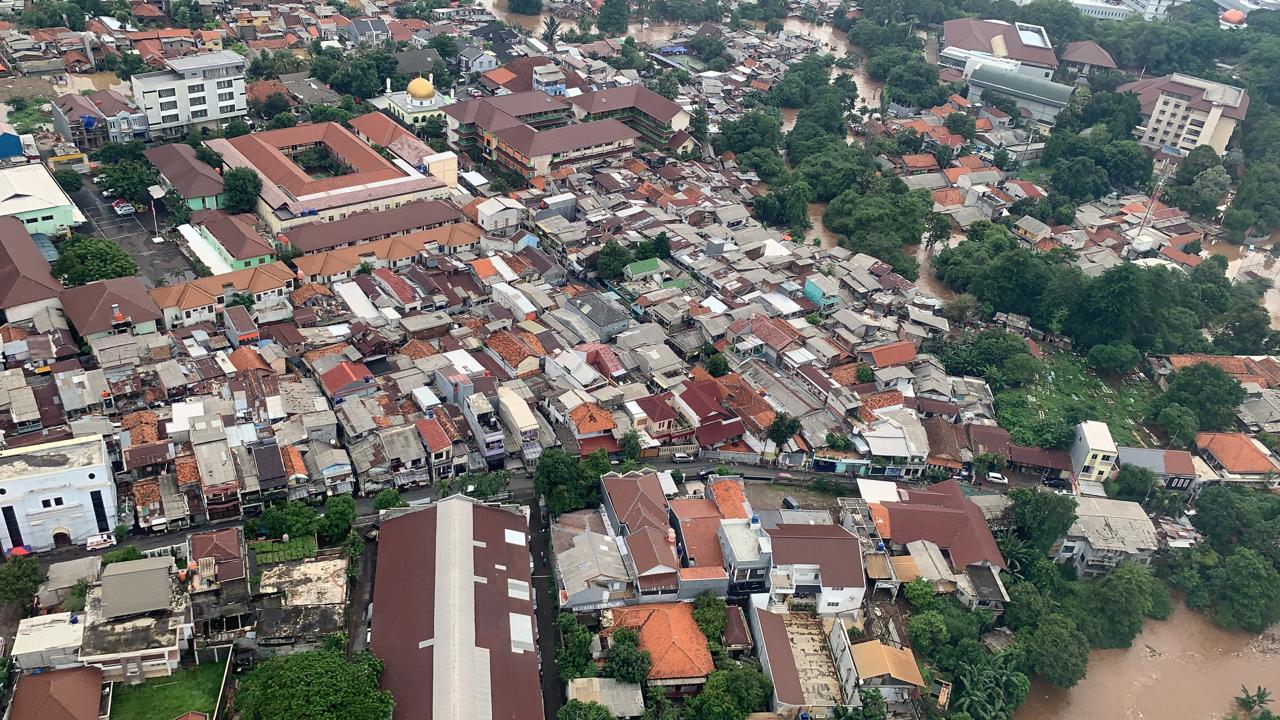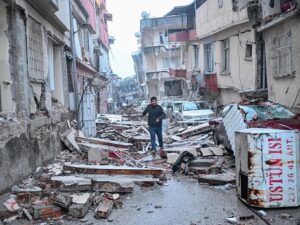By: Ali Farkhan Tsani, Senior Editor of Mi’raj News Agency (MINA)
Talking about calamity, the word “calamity” itself implies any event that is not liked (for believers).
In the Qur’an, the word “calamity” is mentioned several times, including:
ٱلَّذِينَ إِذَآ أَصَـٰبَتۡهُم مُّصِيبَةٌ۬ قَالُوٓاْ إِنَّا لِلَّهِ وَإِنَّآ إِلَيۡهِ رَٲجِعُونَ
Also Read: Sadaqah, A Simple Act with Extraordinary Virtues: Dr. Wahyudi KS
Meaning: “People who, when afflicted by disaster, they say,” Innaa lillaahi wa innaa ilaihi raaji`uun “(Truly we belong to Allah and indeed to Him we will return). (Surah Al-Baqarah [2]: 156).
Through the verse, Lord seems to console us so that if we are struck by a disaster, we should not be too sad, too protracted, regret the fate then despair. Because everything really belongs to the Lord, it happens because of the Lord’s power. Laa haula walaa quwwata illaa billaah.
Including when there is death calling our family or relatives or our neighbors and associates, even to those we love very much. It is the will of the Lord, and we cannot block it.
Everything has been recorded in the heavens in the notes of Allah, ‘lauhul mahfudz‘. God confirms in His word:
Also Read: The Dynamics of Living in a Muslim Community in the Modern Era
مَآ أَصَابَ مِن مُّصِيبَةٍ۬ فِى ٱلۡأَرۡضِ وَلَا فِىٓ أَنفُسِكُمۡ إِلَّا فِى ڪِتَـٰبٍ۬ مِّن قَبۡلِ أَن نََََََََََََََََََََََََََّّ
It means: “There is no disaster that has befallen on earth and [neither] on yourself but has been written in the book [Lawh Mahfuz] before We created it. Verily, that is easy for Allah “. (Surat al-Hadid [57]: 22).
Precisely with the existence of that calamity, Lord wants to add a reward for His chosen servants.
The reward for those who, if a disaster comes, then they give it to Lord while hoping for the reward for the calamity that befalls, and ask for a better compensation only from Him. Accompanied by prayer.
Also Read: The Meaning of “Minal Aidin wal Faizin”
اَللَّهُمَ أْجُرْنِيْ فِيْ مُصِيَبِتِيْ وَاخْلُفْ لِيْ خَيْرًا مِّنْهَا
It means: “O Allah, reward this calamity that has befallen me, and give a better chance than panic”. (Muslim HR).
He who is affected by disaster will also feel roomy if he is fully aware that this world is indeed a place for tests, disasters, and calamities. A place of enjoyment only in heaven. So even if you get an exam, it’s only natural. That’s life. Therefore, the test is not to be mourned and left behind but to be faced with Lord’s perseverance.
We who are also affected by disasters can reflect in our environment, that in fact there are many other disasters that are far greater than other disasters that befall us. So that our hearts feel comforted, what happened to a disaster like it is not just him alone.
Also Read: The Atrocities of Zionist Israel During Ramadan
Do not forget also that the trials and calamities that we feel, for believers are as a merger of their past sins.
The Prophet sallallaahu ‘Alaihi Wasallam also mentioned in his hadith:
the nature of the hadith says:
Meaning: “Always a trial befalls a believer and a believer in his body, property, and child so that he meets Allah in a state of not having sinned.” (Narrated by Ahmad and At-Tirmidhi).
Also Read: Imaam Yakhsyallah Explains the Interpretation of Quran Surah Asy-Shura Verses 13-15
Very appropriate and it is fitting if we accompany every disaster and disaster that befell us by multiplying the phrase “Astaghfirullaahal‘ adzim “(I beg for forgiveness O Lord Almighty).
A sentence sign we surrender to Him, proof we acknowledge our weaknesses and our ignorance of what His plans and wisdom behind it all, as well as efforts to melt our sins.
Once again “Astaghfirullaahal” adzim. Astaghfirullaahal zim adzim. Astaghfirullaahal ‘adzim“. (AT/RE1/P2)
Mi’raj News Agency (MINA)
Also Read: Imaam Yakhsyallah Mansur: Mosques Play a Central Role During Ramadhan



























 Mina Indonesia
Mina Indonesia Mina Arabic
Mina Arabic